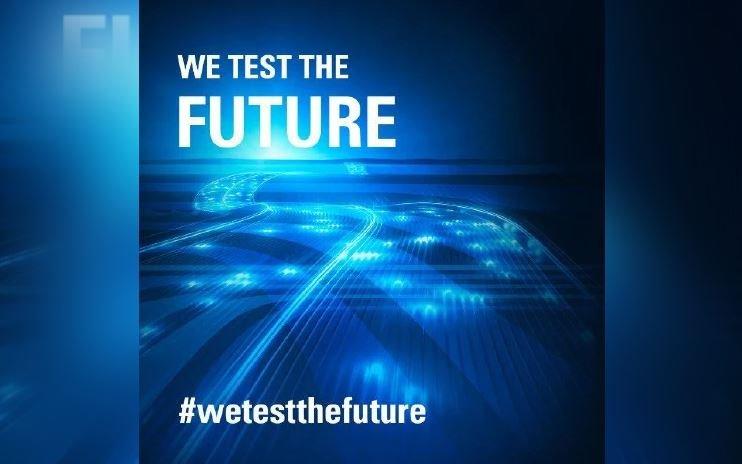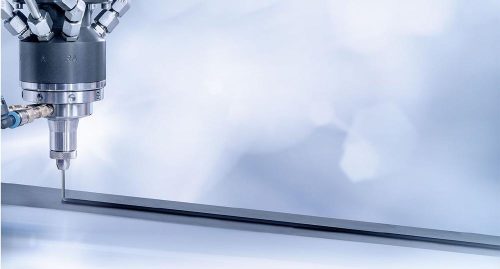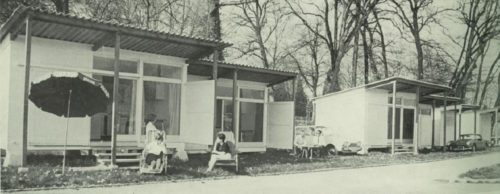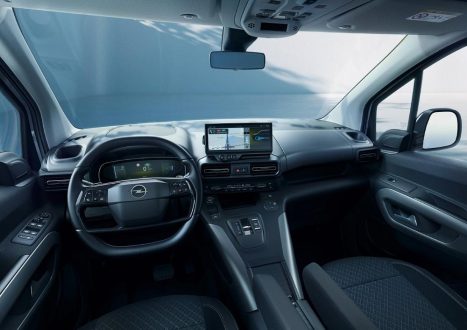
TÜV SÜD: We test technology – before it comes onto the market
"A potential sales ban on newly-manufactured combustion engine vehicles as of 2035 is being discussed by politicians and is regularly in the headlines. Independently of this, many new technologies for the mobility of tomorrow are already available, or very nearly so. As a testing-partner open to all technologies in the area of new energy vehicles (NEV), TÜV SÜD is prepared for all options and power-train systems, and tests these before they even come onto the market,“ says Karl Meier, Business Line Manager.
A major topic, alongside hydrogen technology and electromobility, is autonomous driving. Here, too, TÜV SÜD is one step ahead and is able to support vehicle and component developers in all areas and phases, for example, with physical and virtual testing, SOTIF and access to international markets. It’s precisely in this area that TÜV SÜD experts around the world are actively cooperating with industry, research projects and political committees. It is TÜV SÜD’s global presence, especially, and its knowledge so gained of local markets and the relevant regulatory requirements, that allow us to offer our clients a custom-made package of services. Whether for autonomous driving functions or regulatory approval for wireless components, approval for battery-powered and fuel cell powered vehicles (BEV and FCEV), vehicle developers receive complete support and a full range of tests from a single source – TÜV SÜD.
At full speed
Also electrically-powered: mobility using hydrogen in FCEVs. The TÜV SÜD experts have accompanied the development of vehicle hydrogen technology from the start, with unbiased safety evaluations, individual registrations of test vehicles and vehicle-type approvals. Through-flow, pressure cycles, leakproof tanks, EMV or petrol station access: the implementation of hydrogen technology presents a major challenge to component manufacturers. Martin Sekura, Hydrogen Business Development Manager, says “Here, at our newly-opened hydrogen laboratory in Garching, we have at our disposal a wide range of tests which can reliably evaluate the suitability of components and systems." This portfolio is currently being expanded yet again, to include, for example, load variation analyses and new certification performances. In labs in Straubing and Mannheim, further capacities are being created for environmental and EMV tests at maximum hydrogen pressure. Sakura says “Hydrogen markets are developing rapidly, and we are excellently-positioned for these developments.“
Driverless
The experts at TÜV SÜD have done truly pioneering work in the area of autonomous driving. That is true of the first autonomous public transport bus on Germany’s roads, also the cooperation with the German National Railway (DB), testing of autonomous vehicles of the American company Motional, and cooperation with the Israeli company Mobileye, a subsidiary of Intel.
“From global commitment to testing: physical testing remains a state-of-the-art method for the approval of automated vehicles, even though virtual testing methods are growing in importance,“ says Christian Gnandt, Global Head of Highly Automated Driving at TÜV SÜD. As it stands, the requirements for initial vehicle registration still vary greatly from country to country. That is why TÜV SÜD already offers its customers a whole range of tests for vehicle-type registration in all major markets. These tests include physical and virtual methods, as well as for cybersecurity or connectivity (Car x2). Additionally, industry standards have given orientation for years. Among these are ISO/SAE 21434 for cybersecurity or ISO 26262, which has been the basis for software development in the industry since 2018. These help to smooth the way for autonomous driving and serve as a guideline for the production side of the industry. New standards, for example ISO 21448 (SOTIF) for functional safety, are ready to be implemented.
Physical or virtual? TÜV SÜD is pursuing a clear strategy regarding the development of new testing methods. In this context, TÜV SÜD has just announced a cooperation with the operator of one of the biggest and most modern testing areas in Europe. ZalaZONE’s testing area in Hungary provides many different testing options in the area of autonomous driving. A two-lane track, where so-called cut-in tests can be conducted, is only one example. In the modern testing centre, real-test data can be immediately digitalised using a virtual twin, and later referred to for the further development of virtual testing. The development and validation of testing methods is a prerequisite for new universal standards. They are the basis for speedily getting autonomous vehicles onto the road,“ emphasises Gnandt.
Highly-charged
Electric power-trains play an important role in the new era of mobility. In Europe, too, electricity has become the main source of power relied upon for mass mobility’s development and planning. Also in the development of new mobility concepts, like shared mobility or autonomous driving, the focus is on vehicles with electric power-trains. Martin Eschler, Managing Director of TÜV SÜD Battery Testing plc says “As pioneers and the leading testing facility for battery tests, we have more than 10 years of experience in the area of power-train batteries and so have a relevant lead in knowledge and technology in this market of the future. With our investments in innovation, we provide our customers with competitive advantages. As facilitators of e-mobility, we fulfil the necessary requirements for safety and trust in battery technology.“
The portfolio includes abuse-tests, crash tests, life cycle tests and state of health (SOH) tests, as well as environmental and mechanical stress tests. In addition, in testing labs of the global Network for Mobility (in Germany, the USA, Canada, China, Korea, Singapore, Thailand and Japan) our engineers provide certification of high performance charging systems. Moreover, TÜV SÜD is one of the leading certifiers of charging stations in Europe. Our experts have just expanded the capacity for the testing of high performance charging systems. Now, systems of up to 360 kilowatts can be tested.
Interference-free
Electronic security is currently playing a pivotal role in wireless data transmission, that is, the communication between vehicles Car2Car or Car2X. Here, the spectrum of the TÜV SÜD experts ranges from environmental testing (ENV), in which electronic components are tested in special testing facilities as per environmentally relevant parameters, eg, temperature, vibration and humidity, to the testing of network components, and the testing of electromagnetic compatibility (EMC). This ensures that electronic components function within the transmission radius without interference.
Further important areas of vehicle development include tank tests, for example, relating to their anti-leak capacity and temperature stability. This is of overall importance for materials in vehicles. The appropriate tests are available from the TÜV SÜD specialists.
No holding back
Back to NEV – i.e., the new energy vehicle. The discussion regarding the driving range of e-vehicles has died down, thanks to fuel cells and higher performance batteries. An important factor that ensures everything runs smoothly from A to b is the tyres. For ten years, TÜV SÜD has not only been the lab of reference for EU tyre labelling but has also been accredited as a technical service by many international permit authorities. Says Klaus Baltruschat, Strategic Account Manager at TÜV SÜD Tire and Wheels Testing “ The range of tests includes, of course, braking on dry and wet surfaces, and traction on snow and ice. In addition, there are extensive tests for rolling resistance, wear and tear, acoustics and fuel consumption.“
At the Automotive Testing Expo, from June 21 to 23, the TÜV SÜD experts will be at booth 8010 in hall 8, ready to answer all your questions about the testing of vehicles and components.
Further information at https://www.tuvsud.com/de-de/veranstaltungen/ate-2022.
Founded in 1866 as a steam boiler inspection association, the TÜV SÜD Group has evolved into a global enterprise. More than 25,000 employees work at over 1.000 locations in about 50 countries to continually improve technology, systems and expertise. They contribute significantly to making technical innovations such as Industry 4.0, autonomous driving and renewable energy safe and reliable. www.tuvsud.com
TÜV SÜD Customer Engagement and People GmbH
Westendstraße 199
80686 München
Telefon: +49 (89) 5791-0
Telefax: +49 (89) 5791-1551
http://www.tuvsud.com/de
Unternehmenskommunikation INDUSTRIE
Telefon: +49 (89) 5791-2372
Fax: +49 (89) 5791-2269
E-Mail: thomas.oberst@tuev-sued.de
Unternehmenskommunikation / Corporate Communications
Telefon: +49 (89) 5791-1592
Fax: +49 (89) 5791-2269
E-Mail: Dirk.Moser-Delarami@tuev-sued.de
![]()





